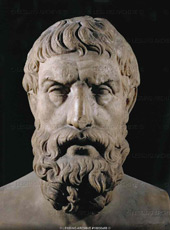You are the problem!
 It’s May Day. Workers, trade unionists and party leaders are rushing
to their venues to hold rallies. You are a retired government servant
who has lost interest in May Day or trade union activities. You drive
your old car to the nearest town to buy pressure tablets and some
vegetables. The roads are deserted and most of the shops are closed.
There is a big rush at the pharmacy. The customers do not wait in a
queue. Everybody wants to be served first. The salesgirl mutters
something under her breath. It’s May Day. Workers, trade unionists and party leaders are rushing
to their venues to hold rallies. You are a retired government servant
who has lost interest in May Day or trade union activities. You drive
your old car to the nearest town to buy pressure tablets and some
vegetables. The roads are deserted and most of the shops are closed.
There is a big rush at the pharmacy. The customers do not wait in a
queue. Everybody wants to be served first. The salesgirl mutters
something under her breath.
Finally you manage to buy your pressure tablets and vegetables at the
market. But your car begins to give you trouble. The engine does not
start. You look for a mechanic as if searching for a black cat in a dark
room. Finding no mechanic you phone your garage owner but there is no
answer. You try to reach him on his mobile phone, but you hear the
standard message: “The mobile you phoned is not responding.”
You return home exasperated. You are about to explode in a fit of
rage. You shake your fist and begin to shout obscenities. If you have
ever had an experience anything close to the one just described, you’ve
shared the nearly universal sense of frustration, anger and anxiety
caused by people and events beyond your control.
Stoicism
This kind of reaction to external events was so common even in the
past that a school of philosophy sprang up in ancient Greece to deal
with such problems. It was called Stoicism and those who practised it
were known as Stoics.
|

Epicurus: Gods have no interest
in human affairs |
Before Stoicism emerged most people thought that pleasure was always
good and pain was bad. According to Stoics, happiness comes only through
detachment from all “externals.” They believed that a disciplined and
reasonable man could lead a happy life under any circumstances. They
contended that nobody could make you happy or unhappy without your
consent.
Regarding the opening episode, a Stoic would say that your anger and
frustration are self-induced. In fact, nothing happens to you. You
create problems for yourself. In other words, you are the problem!
A reasonable man might wonder whether it is possible to remain calm
and collected under all circumstances. Does it mean that certain
circumstances make us unhappy and distressed? Then why do some people
seem to be happy all the time? On the other hand, why do rich and
powerful people feel unhappy? Does it mean that happiness is a matter of
attitude?
Hedonism
In fact, Stoicism sprang to refute Hedonism which espoused the cause
of pleasure. According to Hedonists, you must always pursue pleasure.
Some Hedonists, however, stressed the pursuit of pleasure while others
emphasised the avoidance of pain. Those who believe in Hedonism say that
we must seek pleasure and avoid pain because the pursuit of pleasure is
our birthright. Aristippus (c.430 - 350 BCE) taught that pleasure is the
principal motive for living and that it is always good.
Then came Epicurus (341 - 270 BCE) who rejected the philosophy of
Plato and Aristotle after studying it. Claiming that he was a
self-taught philosopher Epicurus founded the Garden, his own school of
philosophy. The Garden had unusual features. He accepted all who came
there to learn philosophy: housewives, prostitutes, slaves and
aristocrats. His favourite pupil Mysis was his own slave. His mistress
Leontium was a courtesan who wrote many books on philosophy with his
help.
Although Epicurus was a rather unconventional philosopher, he went
beyond Aristippus’s Hedonism. Epicurus said that we need not select
every pleasure because at times we forgo certain pleasures. For
instance, when we are under medication we avoid eating our favourite
food items. Similarly, we regard certain states of pain as preferable to
pleasures. A case in point would be a man going in for an operation. The
operation itself will give him pain, but on recovery he will enjoy
pleasure.
Epicureanism
It is wrong to believe that Epicureanism was a philosophy of
self-indulgence. For him the highest pleasures are intellectual, not
physical. In its broadest sense, Epicurus’s teaching consisted of the
pursuit of happiness by eliminating mental and physical pain. He said
that mental pain was worse than physical pain. According to him, we need
not fear death since there is no afterlife or avenging gods.
A criticism levelled against Epicurus is that he promoted a
promiscuous or decadent lifestyle by opening his school. On the other
contrary, he knew that bodily pleasures brought with them immense pain
or painful consequences. Although Epicurus rejected the concept of an
all powerful God, he was not an atheist. He believed that there were
gods but they had no interest in human affairs.
Epicurus’s philosophy seems to be a curious mix of opposing ideas. He
was a Hedonist who preached prudence and temperance. He was a theist who
rejected divine intervention. He was also an atomist who upheld
mechanism and free will. Epicureanism enjoyed 600 years of tremendous
popularity until it was eclipsed by Stoicism. |

